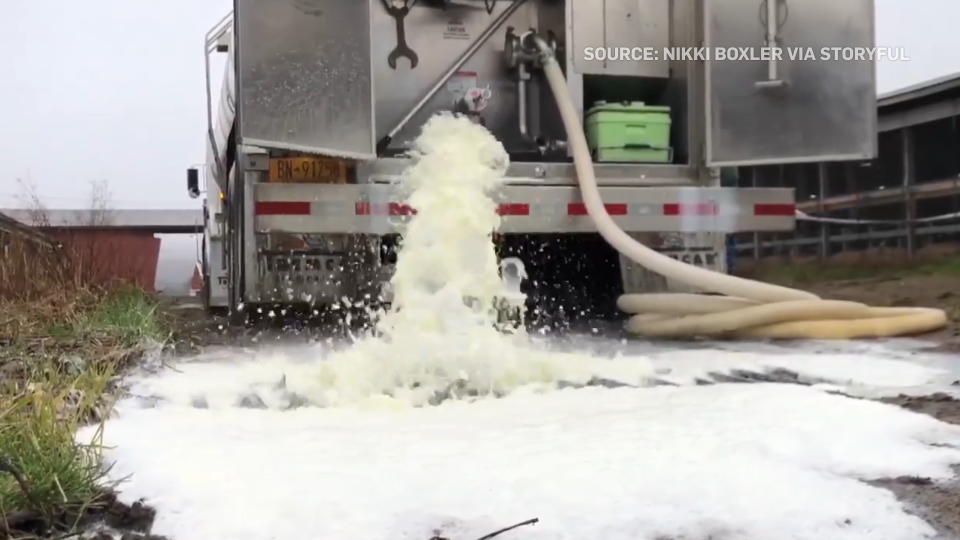DESIBUZZCanada
Events Listings
Dummy Post

International Day Of Yoga To Be Virtually Celebrated Saturday At 4pm

CANCELLED: Coronavirus Fears Kills Surrey’s Vaisakhi Day Parade

ADVERTISE WITH US: DESIBUZZCanada Is The Most Read South Asian Publication Online

SURREY LIBRARIES: Get Technology Help At Surrey Libraries

WALLY OPPAL: Surrey Police Transition Update On Feb. 26

GONE ARE THE DAYS - Feature Documentary Trailer

Technology Help At Surrey Libraries

Birding Walks

Plea Poetry/short Story : Youth Contest

International Folk Dancing Drop-in Sessions
OVER-SUPPLY: Falling Demand For Milk Forces Dairy Farmers To Dump Their Milk
- April 11, 2020


TORONTO – Falling demand for milk is forcing dairy farmers across Canada and the U.S. to dump gallons of milk and see their profits go down the drain as they try to manage the widespread disruptions the COVID-19 pandemic has brought to their industry.
John Walker of Walker Dairy Inc., near Aylmer, Ont., said his farm was asked last week to start disposing of its milk oversupply, reported CTV News.
"There is just nowhere for it to go," Walker told CTV News London on Sunday. "Schools, restaurants, and even Tim Hortons' amount of cream is down. Those are all things that have slowed down demand for our product right now."

Dairy farmers in the U.S. are feeling the same pressures, according to Nikki Boxler, who owns a family dairy farm called Boxler Dairy in Varysburg, New York.
Boxler said she too, has been forced to start dumping her milk supply because processing plants are at capacity.
“Watching your hard work literally go down the drain is heart-wrenching. The wasted product represents our livelihood and the massive amount of hard work that takes place year-round to produce it,” she said Sunday in a Facebook post.
Boxler also said that the perishable nature of milk has meant the dairy industry is getting “hit harder and earlier than other agricultural commodities.”
Similar stories of tankers full of milk being dumped are also being reported by dairy farmers in Georgia, Wisconsin, and Minnesota.
In a statement released last week, the Dairy Farmers of Canada (DFC) acknowledged the “significant impacts” COVID-19 has had on farmers across the country, including a near complete shutdown of restaurants and a big shift in grocery-shopping patterns.
“The dramatic changes in demand and the related challenges being felt throughout the supply chain have resulted in the need for the disposal of some raw milk, which is extremely unfortunate and difficult,” part of the statement read.
The Dairy Farmers of Ontario (DFO), the marketing group that represents more than 3,800 dairy farmers across the province, said it has only asked producers to dispose of raw milk once before in its 55-year history.
Courtesy CTV News


















